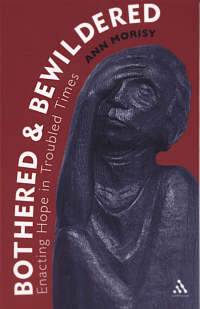
Elizabeth Fry (nee Gurney) was born in 1780 into a well-to-do Quaker family in Norwich. As a child she did not enjoy the Quaker meetings and made her delicate health an excuse for missing them. Later Elizabeth became one of the Plain Friends whose religious observance was very strict: they dressed plainly and refused to join in with dancing and singing.
Elizabeth married a banker, Joseph Fry, who was the partner in Gurney’s Bank. She entertained as the wife of a wealthy businessman and helped him through financial crises, which drastically changed their lifestyle. Elizabeth bore eleven children. But it was her voluntary work in prisons that she is remembered for.
A visiting fellow-Quaker showed her the conditions in which women prisoners were kept in Newgate prison. Newgate was a prison which held both men and women awaiting trial, sentencing, execution, and transportation. Elizabeth found women and children living and dying in conditions of horror, filth, and cruelty. She resolved to do something about it.
Firstly, she visited the prisons and encouraged other middle class women to do so, overcoming official opposition and setting up education classes for women. She was ahead of her time in the way she treated the prisoners as human beings. Elizabeth did not impose discipline on them but instead proposed rules and invited the prisoners to vote on them, and she put an educated prisoner in charge.
Secondly, Elizabeth told people in the outside world about prisons. She used her connections in high places to good effect (despite her religious principles she enjoyed high society). Both Florence Nightingale and the young Queen Victoria admired Elizabeth for her compassionate exercise outside the home. She was the figurehead of philanthropic endeavour in this country and today is regarded as one of the early feminists. In 1835, she testified before the House of Commons Parliamentary committee, established to investigate “The State of Gaols in England and Wales.” Elizabeth also spoke before a House of Lords Select Committee in the same year.
Elizabeth was the first penal reformer to devote her attention solely to the plight of imprisoned women. Her ideals for penal reform were based on the precepts of the Society of Friends (Quakers). Quakers emphasised personal, paternalistic means of correction, and their main instrument of reform was religion. Although nineteenth century Quaker doctrine and practice did not allow women a complete role in religious activities, the doctrine of direct inspiration made it possible for women to become ministers. Long before her work in prisons, Elizabeth had become a minister of considerable renown, noted for her “peculiar gift of exhortation.” In 1797, Elizabeth wrote, “I love to feel for the sorrows of others.”
It is significant that the initial concerns of Elizabeth centred on the children and not the women prisoners. She, unlike other early visitors, tended to concentrate on the behaviour of women rather than their moral corruptness. Whatever her initial conceptions of the women were she soon began to see them in a different light. In 1817, she wrote, “Already, from being like wild beasts, they appear harmless and kind.” From the initial focus on convict children, Elizabeth quickly sought to improve the physical conditions for the women.
“We long to burn her alive,” wrote the Reverend Sydney Smith in 1821 of Elizabeth, “Examples of living virtue disturb our repose and give birth to distressing comparisons.” When Elizabeth started her work she frightened many people with her frankness about a subject most would rather have left un-discovered. As she progressed, the opposition to her dwindled. The Lord Mayor of London even demanded a tour of Newgate Prison so that he could see the good work she was doing for himself.
One of the first steps towards Elizabeth’s aims was the formation of the Association for the Improvement of the Females at Newgate. The Association comprised Elizabeth, a clergyman’s wife, and eleven members of the Society of Friends. The General Aims of the Association were,
“to provide for the clothing, the instruction, and the employment of these females, to introduce them to knowledge of the holy scriptures, and to form in them as much as lies in our power, those habits of order, sobriety, and industry which may render them docile and perceptible whilst in prison, and respectable when they leave it.”
Newgate was transformed through the changes introduced by the Association.
With the early success of Newgate behind her, Elizabeth set out in 1818 to tour gaols in England and Scotland to establish other Ladies’ Associations. In 1825, Elizabeth published her short but influential book, “Observations of the Siting, Superintendence and Government of Female Prisoners.” Unlike other early reformers, Elizabeth provided the concrete, explicit detail for operating penal regimes.
The driving force behind Elizabeth can be summed up in these words which she used to tell a fellow Quaker her feelings on Newgate Prison in 1813 after her first visit to the prison.
“All I tell thee is a faint picture of reality; the filth, the closeness of the rooms, the furious manner and expressions of the women towards each other, and the abandoned wickedness, which everything bespoke are really indescribable.”











